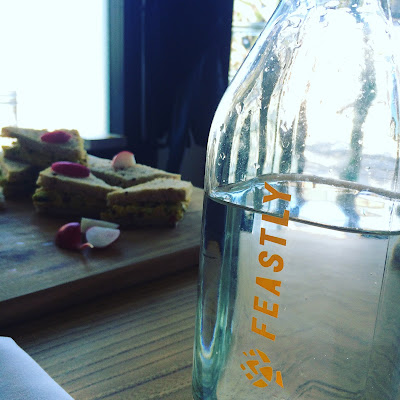I learned a lot from our week in San Francisco, but my top
three take-aways are:
“Everything is up for debate.” – Mike Truong,
Uber. Sharing economy companies systemically experiment and use data to drive
their decision-making. This isn’t a
huge revelation, but I was impressed with the degree to which Uber, Airbnb and
Feastly were all gathering data in order to improve their processes, product
and customer service. Though of vastly different sizes and stages of growth,
each company has impressively incorporated experimentation that is driven by
data – not hierarchy – into their culture and systems. Born of this will be predictive
pricing, tougher security measures, and tailored services that each company
hopes will deliver a better product to both the peer provider and the peer user.
Importantly, experimentation also means accepting and learning from failure,
something that can be hard to handle when the stakes seem so high. Despite the
risks, systematic data-driven invention and experimentation ensure that, as these
companies grow, they will remain nimble enough to change strategies, spot
trends, and continue to solve problems that their customers didn’t even know
existed.
“Our currency is trust.” – Chip Conley, Airbnb.
Sharing economy companies must constantly work to help the peers trust each
other, and therefore, trust their platforms. For the sharing economy
companies, legitimacy is everything. Feastly rigorously vets chefs and takes
professional photos of their meals in order to help diners trust that the experience
will be professional and the food will meet safety standards. Uber improves
their app to strengthen security and feedback measures to build trust between
drivers and passengers. Airbnb works with municipalities and grassroots groups to
ensure that community cultures remain strong in the wake of disruptive
technologies. Only with these measures can these companies create the
supply-and-demand loop necessary to survive and thrive, especially since for
many the sharing economy is still quite new and consumers still need a lot of
education about how to participate in it.
“I’m the sum of my experiences… our
generation wants and values experiences.” – Noah Karesh, Feastly. Sharing
economy companies must balance the desire to provide “experiences” with the need
to meet customer expectations. There is a spectrum of sharing economy
companies: either they offer “experiences” for a premium or they offer
convenience at a lower price – it is difficult for a company to do both at the
same time.
Feastly is basing its business on
the assertion that diners will pay a higher price point for a special dining experience.
A higher price point seems to work for some of their more professional chefs –
diners expect to pay more for better food and service. But the company can’t
completely move in that direction since doing so would limit the variety of their
offerings and sacrifice the characteristic unique experience that can be had
with amateur chefs who command a lower price point.
Uber’s challenge is that it
wants to offer good experiences (e.g. drivers singing with riders), but what
its riders really want – and have come to expect (e.g. riders upset with surge pricing) – are reliable, cheap and
decidedly ordinary experiences.
Airbnb may have found the sweet
spot. On one hand, it knows that many guests want a reliable, lower-price alternative
to hotels that is without incident so that the accommodation enables the “experience”
to happen in the neighborhood/community where it is located. Airbnb also wants to
offer a certain amount of accommodations that are at a higher price point for
the experience of staying in that accommodation (e.g. tree house). It has attained
the balance between offering enough variety of the product to meet guest
expectations about experience and price. Airbnb’s challenge is that it must
now also ensure that customers are appropriately matched with products that
meet their expectations and valuation for an experience.




























